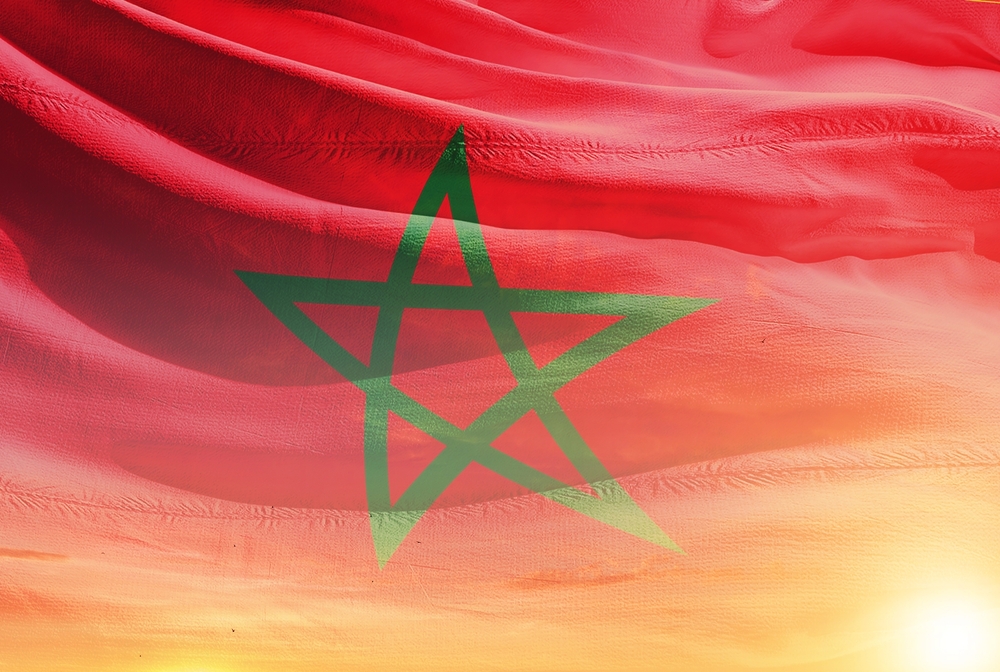Morocco

Morocco, identified as the Kingdom of Morocco, is a country in the Maghreb region of North Africa. It has a unique location, bordered by the Mediterranean Sea to the north and the Atlantic Ocean to the west. The country borders Algeria to the east and Mauritania to the south. Morocco claims sovereignty over the Spanish-administered territories of Ceuta and Melilla, as well as some small islands off its coast. In addition, Moroccans and the government view Eastern Sahara as historical territory currently occupied by Algeria, recognized by France and subsequently annexed to its former colony of Algeria. Morocco has a population of about 37 million and is a strong mixture of Arab, Berber, African and European cultural influences. Arabic and Berber are the national languages, while French and Moroccan Arabic (dialects) are widely spoken. Rabat is the political capital, while Casablanca is the country’s economic powerhouse.
The name Morocco in English is the Anglicization of the Spanish word Marruecos, which itself derives from Marrakech. Marrakesh served as the capital of several prominent Islamic dynasties including the Almoravids, Almohad Caliphate and Saadians The city’s ancient Berber name Amur and Yakush means “land or country of God” Tamurakusht during the Almoravid period developed into a road, later with Influencing Arabic and European Names Changes in the initial vowels of English names The interior of “Morocco” was perhaps influenced by the term “Moor” often used historically to refer to Muslims of North African origin
Etymology and Moroccan name
Historically, the region was known to Muslim geographers as al-Maghrib al-Aksha (المغرب الأقصى), which translates to the Islamic world as “the far west” This name distinguished Morocco from neighboring regions, e.g al-Maghrib al-Awsat ( The Maghreb) no. الأوسط, “middle west,” including areas from Tripoli to Bejaia) al-maghrib al-adna (from المغرب الأدنى, “near west”” etc. Includes areas from Alexandria to Tripoli).
The modern Arabic name for Morocco is al-Maghrib (المغرب), meaning “Land of the Sunset” or “West”. Officially, the kingdom is called al-Mamlakah al-Maghribiyah (المملكة المغربية), which translates as “The Kingdom of the West.” These lists underscore Morocco’s position as the westernmost country in the Arab world.
In Turkish, Morocco is called Fas, a name derived from the medieval city of Fes, once the capital of the kingdom. The word comes from the Arabic word Faʾs (فأس), meaning “pickaxe,” referring to the legend that the city’s founder, Idris I ibn ‘Abd Allah, marked the city’s boundaries with silver and gold pickaxes
In other parts of the Islamic world, particularly in Egyptian and Middle Eastern Arabic literature before the mid-20th century, Morocco was often referred to as Murrakush (مراكش). This term remains in use today in several Indo-Iranian languages, including Persian, Urdu, and Punjabi.
The ‘Moroccan sharifi heritage based in the lineage of the ‘Alawi dynasty has also influenced the way the country has been politically described in the past: Al-Mamlak ash-Sharif (المملكة الشريفة, “The Supreme Kingdom”); , al-Iyala ash- Sharif (الإيالة الشریفة, “The Kingdom of Integrity”); Terms such as al-Imbraturiyya and Ash-Sharifah (الإمبراطورية) were used to denote the spiritual and historical significance of the dynasty الشريفة, “the High Kingdom”). These words translate into French as l’Empire chérifien, and in English as “Sharifian Empire.”
With this name and title, Morocco’s historical and cultural identity is intricately linked to its territory, religious significance and heritage This unique designation emphasizes the country’s role as a bridge between the Islamic world and the West .